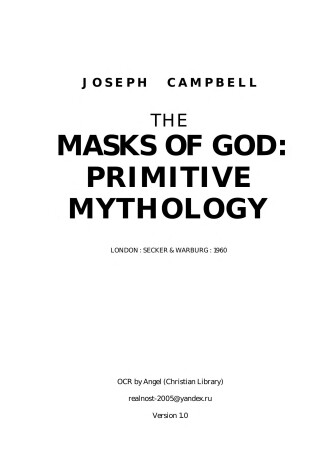Reviewed by gmcgregor on
Which makes this volume a little problematic. While it does lay a lot of ground for the future volumes in terms of tracking social change from cultures that worship a female diety with primarily female priestesess, focused on honoring the Mother Earth and the cycle of life (often taken very literally with human sacrifice) to societies that worship a male diety with male priests, it also was written over 50 years ago based on the state of archaeology at the time. There has been a lot of progress made, not in the least not referring to tribal societies (whose belief systems form a part of this book) as "primitive", but also in archaeology itself. Also, like Joseph Campbell's most well-known work, The Hero With A Thousand Faces, there's a heavy influence from what was de rigeur psychology at the time: Freudianism and psychoanalysis. While I personally believe that the pendulum has swung a little too far away from these kinds of theories (which is a whole different topic), there's no denying that they've fallen far out of favor because of their lack of scientifically provable reliability. To read a book (and series) premised on psychoanalysis as the appropriate lens through which to view the world is a little jarring.
If you're a big mythology nerd who thinks you might want to read this series, pick up The Hero With A Thousand Faces and read it first. Campbell's writing style can be dry and pedantic, but if it holds your interest, then ask yourself if you really really want to read over 2000 pages of world mythology. While I found reading The Masks of God to be ultimately rewarding, it was also a slog at times (especially in this first volume) and you need to be prepared to watch your normal reading pace slow considerably.
Reading updates
- Started reading
- 9 November, 2015: Finished reading
- 9 November, 2015: Reviewed

